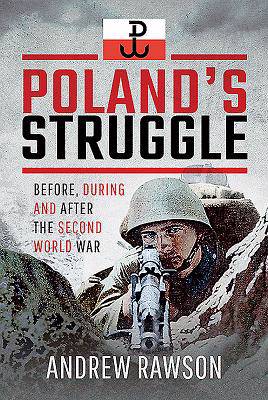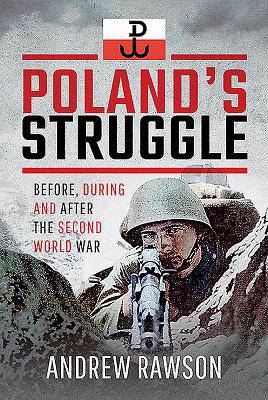
- Afhalen na 1 uur in een winkel met voorraad
- Gratis thuislevering in België vanaf € 30
- Ruim aanbod met 7 miljoen producten
- Afhalen na 1 uur in een winkel met voorraad
- Gratis thuislevering in België vanaf € 30
- Ruim aanbod met 7 miljoen producten
Zoeken
€ 27,95
+ 55 punten
Omschrijving
Poland was re-created as an independent nation at the end of the First World War, but it soon faced problems as Nazi Germany set about expanding its control on Europe. The Wehrmacht's attack on 1 September 1939 was followed by a Red Army invasion two weeks later.
The people of Poland were then subjected to a terrifying campaign of murder, imprisonment and enslavement which only increased as the war dragged on. Polish Catholics faced violence and deportation as they adapted to the draconian laws implemented by the German authorities. Meanwhile, the Polish Jews were forced into ghettos while the plans for the Final Solution were implemented. They then faced annihilation in the Holocaust, code named Operation Reinhard.
Despite the dangers, many Poles joined the underground war against their oppressors, while those who escaped sought to fight for their nation's freedom from abroad. They sent intelligence to the west, attacked German installations, carried out assassinations and rose up to confront their enemy, all against impossible odds. The advance of the Red Army brought new problems, as the Soviet's dreaded NKVD introduced its own form of terror, hunting down anyone who fought for an independent nation.
The story concludes with Poland's experience behind the Iron Curtain, ending with the return of democracy by 1991.
The people of Poland were then subjected to a terrifying campaign of murder, imprisonment and enslavement which only increased as the war dragged on. Polish Catholics faced violence and deportation as they adapted to the draconian laws implemented by the German authorities. Meanwhile, the Polish Jews were forced into ghettos while the plans for the Final Solution were implemented. They then faced annihilation in the Holocaust, code named Operation Reinhard.
Despite the dangers, many Poles joined the underground war against their oppressors, while those who escaped sought to fight for their nation's freedom from abroad. They sent intelligence to the west, attacked German installations, carried out assassinations and rose up to confront their enemy, all against impossible odds. The advance of the Red Army brought new problems, as the Soviet's dreaded NKVD introduced its own form of terror, hunting down anyone who fought for an independent nation.
The story concludes with Poland's experience behind the Iron Curtain, ending with the return of democracy by 1991.
Specificaties
Betrokkenen
- Auteur(s):
- Uitgeverij:
Inhoud
- Aantal bladzijden:
- 208
- Taal:
- Engels
Eigenschappen
- Productcode (EAN):
- 9781526743923
- Verschijningsdatum:
- 13/08/2019
- Uitvoering:
- Hardcover
- Formaat:
- Genaaid
- Afmetingen:
- 160 mm x 234 mm
- Gewicht:
- 521 g

Alleen bij Standaard Boekhandel
+ 55 punten op je klantenkaart van Standaard Boekhandel
Beoordelingen
We publiceren alleen reviews die voldoen aan de voorwaarden voor reviews. Bekijk onze voorwaarden voor reviews.











